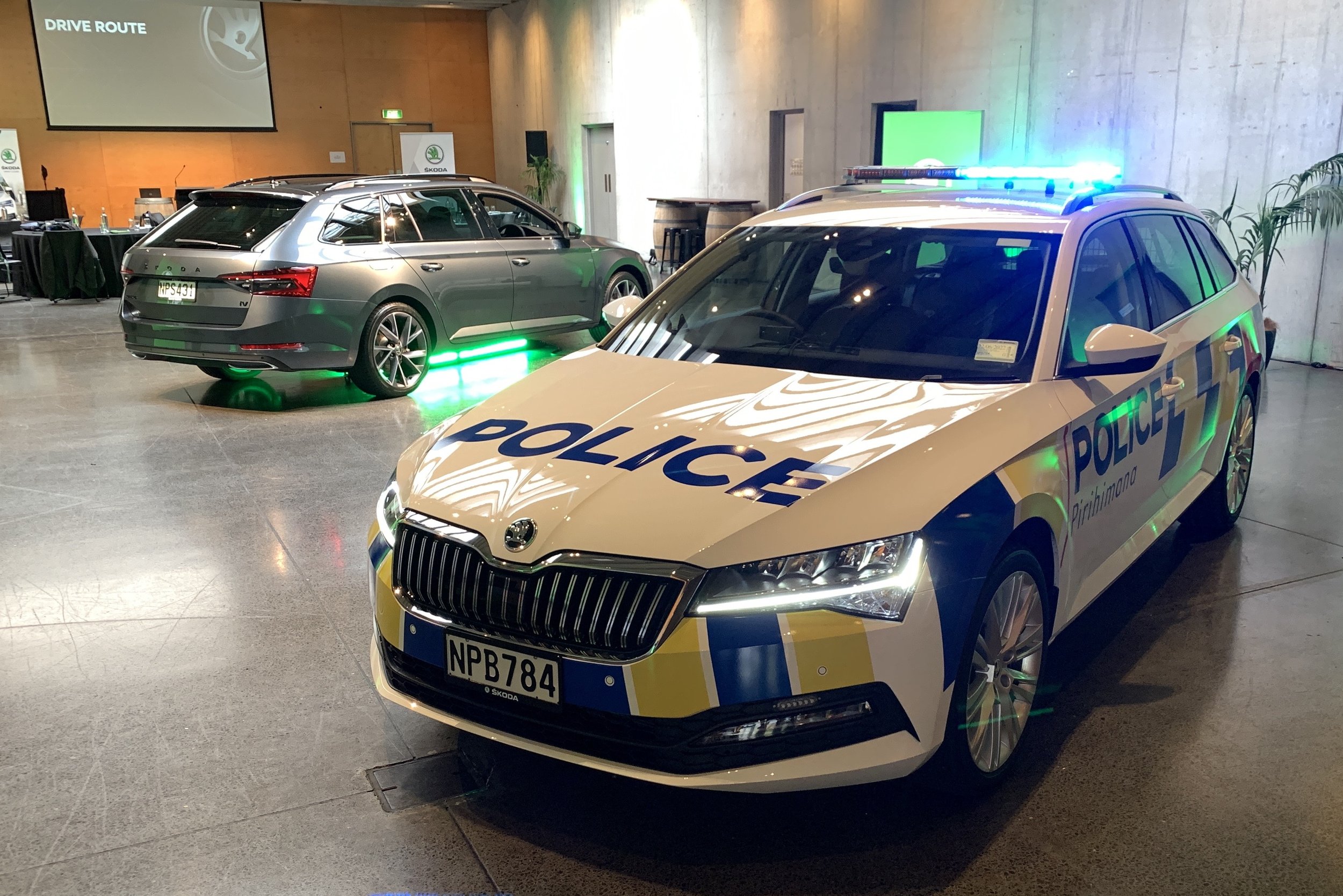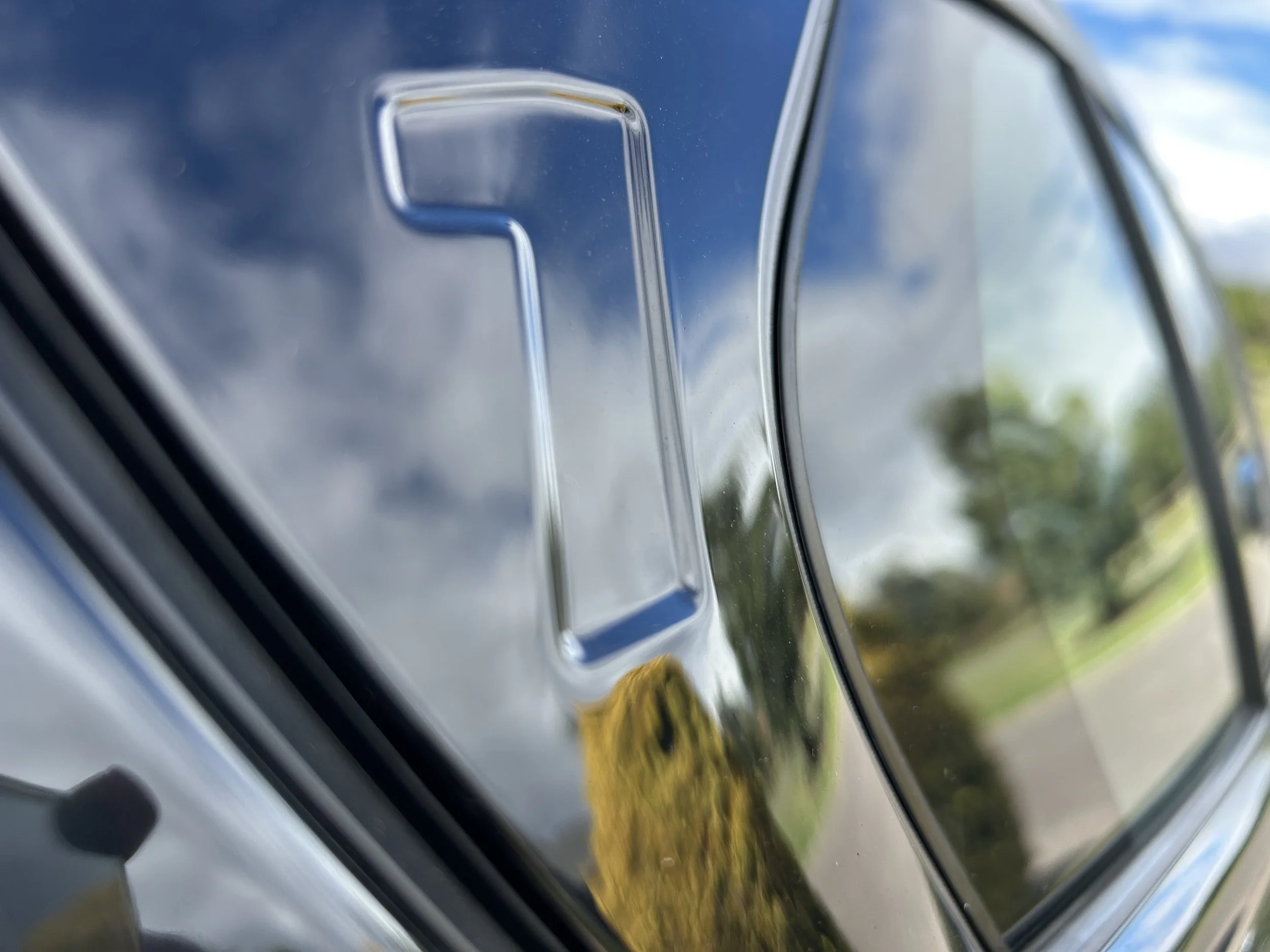Frontline first for Superb supply
/Police contract prioritised as current model enters final weeks of production.
POLICE are priority one for the last stock of the current Skoda Superb with hope being held the replacement will be subject to their inquiry as well.
This from the make’s national distributor in explaining, also, that the car might slip from the showroom for a short time during next year’s switchover.
New Zealand plan for the new fourth generation car has been revealed following last week’s international reveal of the new model.
Skoda NZ boss Rodney Gillard says local availability will occur in 2024, but exactly when is not clear.
He has confirmed the new hatch derivative will continue here, regardless it commands less more attention than the wagon, which is set to solely provision with an improved plug-in hybrid drivetrain.
A cited electric-pure range of 100 kilometres from the new PHEV is almost double that from the current iV-badged product and makes it vital to Superb’s ongoing Kiwi involvement.
For the past two years the wagon’s healthy volume has been largely sustained by it being the Police’s favoured frontline patrol car.
Gillard hopes the force will have interest in the new model - which will also sustain in a pure petrol format they primarily favour, despite dabbling with the iV - though he says any such step up will require a new contract.
In the meantime, the current car’s runout is close to wrapping up.
The factory is set to stop producing it in right hand drive at the end of next month, Gillard believes.
When the new type goes on line, initial focus will be on outputting left-hook editions, for Europe.
Insofar as NZ is concerned, the Police are the primary focus for the factory’s last orders call.
That’s to keep sweet with a four year supply contract which asks for 2000 cars and is in two years in, though how many cars have been delivered to date is not clear.
Gillard says Superb is another Skoda whose supply over the past year has been hampered to degree by component availability issues, notably with super conductors, but that’s all been resolved now.
As transfer from the current to the new progresses, however, the cars that deliver in white and kitted with blue and red flashing lights will be prioritised in the immediate future.
“We definitely have no issues with supply with the Police contract.
“We’ve negotiated with the factory to increase our production so when there’s a gap (in respect the showroom stock) the Police supply won’t be affected.
“More (Police) cars are being built this week as we think that production for right-hand-drive (current car) finishes at December.
“We negotiated a bulk production to see us through as there is always a gap between old and new models, and left and right-hand-drive.”
In respect to how the new line appears to be a subtle aesthetic evolution from its predecessor, with obvious visual similar to what we have now, Gillard has offered there more difference that appearance suggests.
“It might not appear very different if you see it driving past. But when it stops and you can the car then there’s a lot of change to the lights and how the metalwork is changed. And the interior is now very much as you see in the Enyaq (electric car), with the big screen.
“But, yes, it is still a Superb, it is still a big car, it has the same DNA.”
The new body shapes are cited as being being more aerodynamically efficient and though the wheelbase is unchanged, both models are longer and taller than in current form, and interior room has increased; the wagon’s already class-leading advantage in boot capacity increases even more.
Superb buyers will also enjoy an enhanced cabin ambience and the latest in-car technology. The fascia is centred around a 13-inch infotainment screen.
The types achieves first-time fitment of a head-up display, augmenting a 10-inch digital instrument cluster behind the wheel. With the DSG automatic gearbox now a sole choice (as it has been in NZ; only Europe saw manuals) the gear shift lever has gone from the transmission tunnel to the steering column, freeing up storage space.
As previously reported, the iV PHEV drivetrain will deliver with a 112kW 1.5 TSI turbo petrol engine plus an electric motor assist and 25.7kWh battery pack for a combined system maximum power output of 152kW, which as per the current system goes to the front wheels via a six-speed DSG transmission.
The all-electric range of this car is said to be in excess of 100km. And while the maximum AC charging rate is 11kW, allowing for a 2.5-hour full recharge of the battery, this time around the PHEV set-up has the ability to be connected to 50kW DC chargers as well.
That’s a big improvement on the current iV, which has a 1.4-litre petrol paired with an electric motor and a 13kWh battery, for claimed electric range of 62km. It also only provisions for AC trickle charging; a significant bugbear for users on the run.
For those wanting more traditional propulsion systems, there’s a 2.0-litre, four-cylinder TSI petrol in 152kW and 198kW outputs, the latter married into all-wheel-drive.
Dynamic Chassis Control Plus chassis control has a clever two-valve adaptive suspension system with the promise of better handling and ride comfort. There will also be an extensive suite of advanced driver assist safety systems available.
The current car has been a big sales success for Skoda, accounting for over half the 1.6 million Superbs built in the nameplate’s Volkswagen Group era.


















